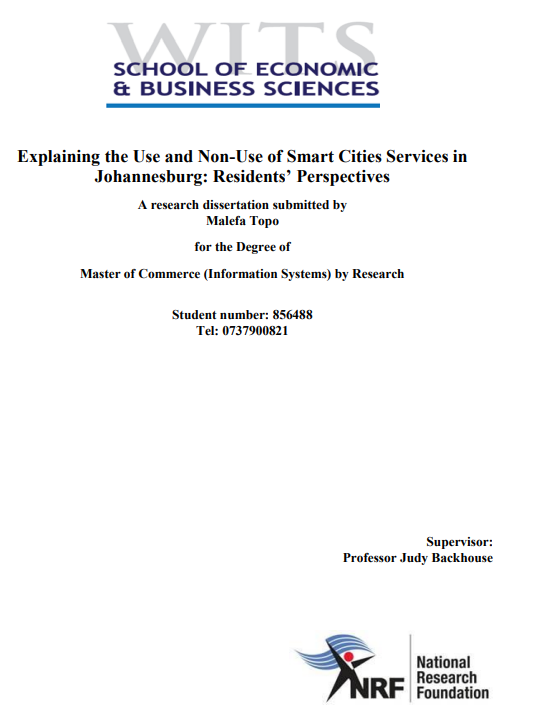Explaining the use and non-use of smart cities services in Johannesburg
Residents' perspectives

09 November 2015
National Research Foundation
English
Conference paper
Africa
One of the aims of the development of smart city initiatives is to provide electronic services that address residents’ information needs. Local governments in South Africa have realised that e-government can improve service delivery. There are currently government e-services that are designed to meet residents’ information needs and transform Johannesburg into a smart city. However, local governments face the challenge of deficiencies in the use of government e-services. In order to ensure that all residents benefit from smart city services there is a need to understand the use and non-use of these services.
The paper reports preliminary results of the research being done in Johannesburg to understand what makes people use or not use smart city services. In this context, smart city services refer to government e-services and city Wi-Fi. The research is addressed from an interpretive perspective employing qualitative methods. The theoretical framework of government website utilization developed by Wang (2014) is used as a theoretical grounding.
Data was collected through in-depth semi-structured face-to-face interviews with open-ended questions and analysed by use of open and closed coding techniques. At the time of writing the paper, nine interviews were concluded. The results show that value, effectiveness, user needs, alternative sources, access, awareness, and trust significantly influence residents’ decisions to use or not use smart city services. The study confirms and extends Wang’s (2014) theoretical framework to make it applicable in other contexts. These results are significant to both theory and practice.
Abstract based directly on original source. Back to the SmartCity.ZA collection.



Comments